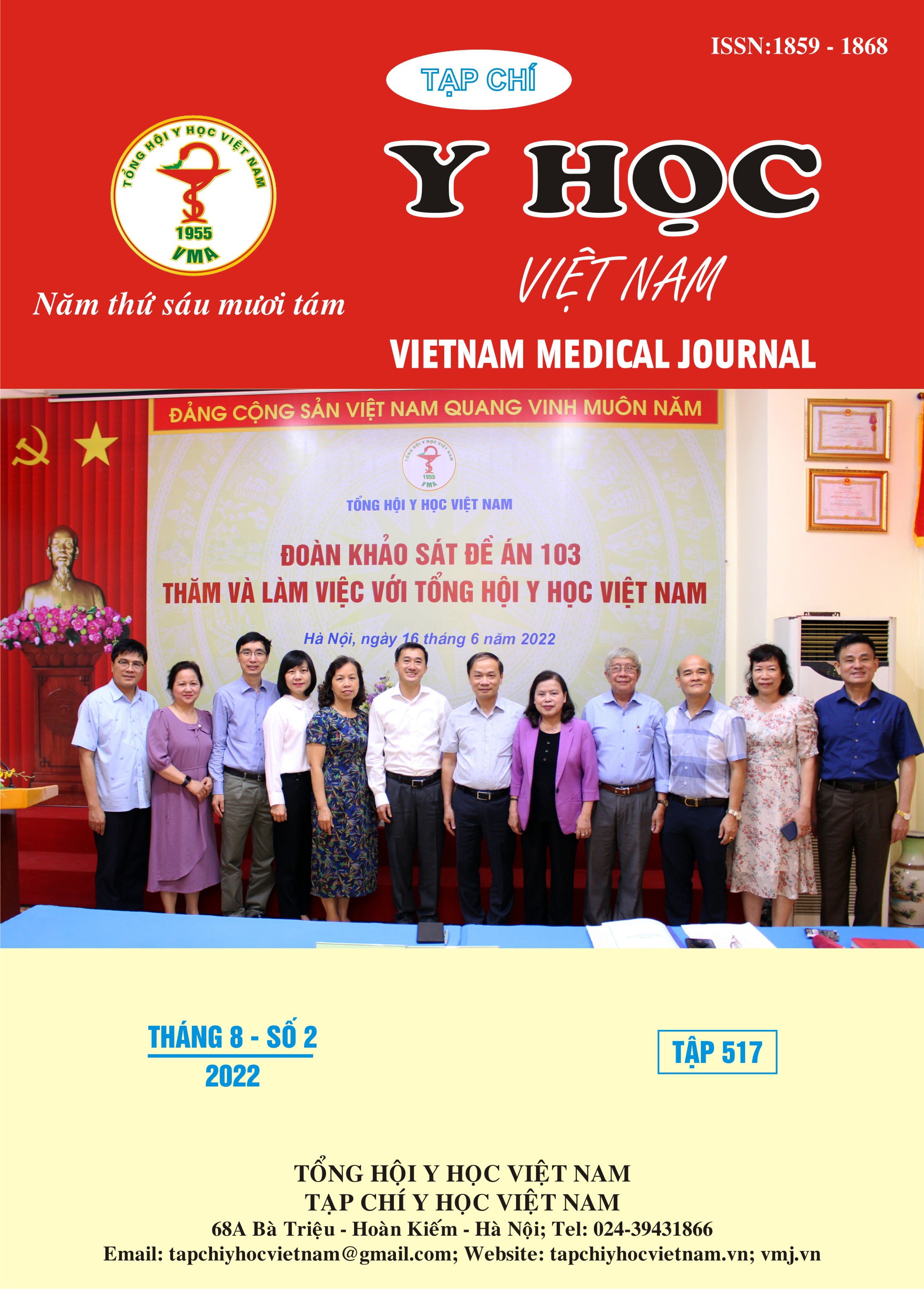ANALYSIS OF THE SITUATION OF USE OF PROTON PUMP INHIBITORS IN THE PREVENTION OF GASTROINTESTINAL ULCERS IN ICU PATIENTS AT CRITICAL CARE DEPARTMENT OF HUU NGHI HOSPITAL
Main Article Content
Abstract
Objectives: to describe patient characteristics and suitability in using PPIs to prevent peptic ulcers in patients treated in the ICU. Subjects: medical records of patients treated at the ICU from September 2021 to December 2021. Methods: Retrospective, descriptive. Results: patients in the study group had a much high average age, mostly male, with many comorbidities. Risk factors focused on: mechanical ventilation for more than 48 hours (94.8%), infection status 89.6%; 75.7% of patients were treated in ICU for more than a week. The reasonable rate of PPIs at baseline was 57.1% and increased to 85.2% when considering the entire course of treatment. In addition, some irrationalities in the use of PPIs include: overdose (11.4%); route of administration, suitable preparations (41.7%), in which especially suitable preparations for patients taking through a nasogastric tube. Conclusion: It is necessary to improve the assessment and rational use of PPIs in the prevention of peptic ulcers in resuscitated patients.
Article Details
References
2. Alsultan MS et all (2010) Pattern of intravenous proton pump inhibitors use in ICU and Non-ICU setting: A prospective observational study. Saudi journal of gastroenterology: official journal of the Saudi Gastroenterology Association 16(4): 275–279. https://doi.org/10.4103/1319-3767.70614
3. Gerald L Weinhouse, MD (2020) Stress ulcers in the intensive care unit: Diagnosis, management, and prevention. www.uptodate.com
4. Rhodes A, et all (2017) Surviving sepsis campaign: international guidelines for management of sepsis and septic shock: 2016. Intensive care medicine 43(3): 304-377. https://doi.org/10.1007/s00134- 017-4683-6.
5. Toews I, et all (2018) Interventions for preventing upper gastrointestinal bleeding in people admitted to intensive care units. The Cochrane database of systematic reviews, 6(6), CD008687. https://doi.org/10.1002/ 14651858. CD008687.pub2
6. Ye Z, Reintam Blaser A, et all (2020) Gastrointestinal bleeding prophylaxis for critically ill patients: A clinical practice guideline. BMJ (Clinical research ed.) 368: l6722. https:// doi.org/10.1136/bmj.l6722.


